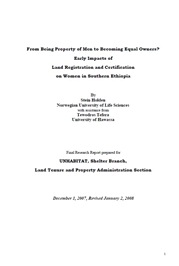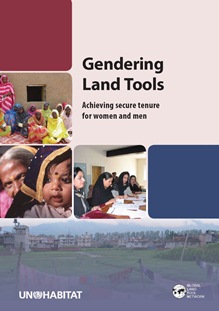Land Policy Options for Development and Poverty Reduction
Presentation of civil society views for pro-poor land policies and laws in Zambia. Includes introduction and background; overview of the land policy options paper; context setting for policy development; policy options; implementation framework. Lays emphasis on protection of customary land, ability to convert leasehold back to customary land, need for size limits, 30% state land allocation should go to women, awareness raising on joint registration.








